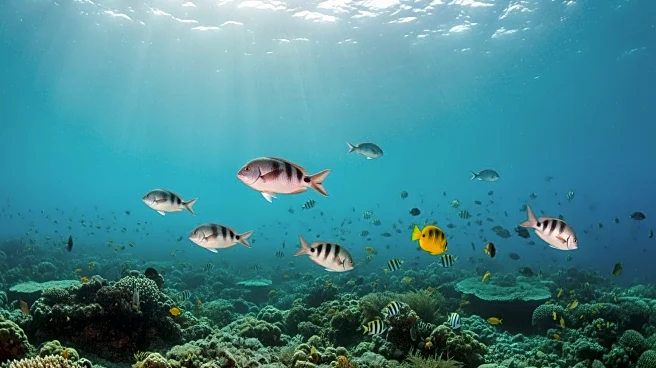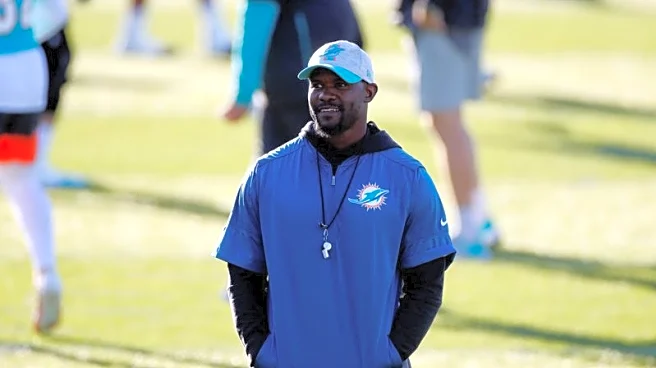What's Happening?
The Danish Pelagic Organisation (DPPO) has been selected to participate in the Science Based Targets for Nature (SBTN) Ocean Pilot, a global initiative aimed at reducing the impact of seafood producers and fishing organizations on marine ecosystems. This
pilot project is designed to establish guidelines for integrating ocean health into corporate sustainability strategies. Esben Sverdrup-Jensen, CEO of DPPO, emphasized the organization's commitment to protecting marine ecosystems and advancing a fishing industry that aligns ambition, responsibility, and science. The initiative builds on DPPO's '2040 Nature Ambition,' which aims for carbon-free fishing within 15 years. The project is supported by marine biologists at WSP, who will contribute their expertise in marine research and ecosystem management.
Why It's Important?
The participation of the Danish Pelagic Organisation in the SBTN Ocean Pilot is significant as it sets a precedent for the fishing industry to incorporate ocean health into sustainability strategies. This initiative could lead to improved environmental stewardship and responsible practices in the seafood sector, which is crucial for maintaining marine biodiversity and ecosystem balance. The collaboration with organizations like WWF and Conservation International highlights the global effort to address environmental challenges in the fishing industry. By adopting science-based targets, the industry can ensure the sustainable use of ocean resources, which is vital for food security, carbon capture, and oxygen production.
What's Next?
The pilot project will develop tools and guidelines for seafood producers and fishing organizations to measure and report their progress in reducing environmental impacts. This could lead to widespread adoption of nature-based practices in the fishing sector, promoting better environmental stewardship. As the initiative progresses, stakeholders such as the Marine Stewardship Council and Aquaculture Stewardship Council will likely play key roles in implementing these guidelines. The success of this pilot could influence policy changes and encourage other industries to adopt similar sustainability measures.
Beyond the Headlines
The initiative underscores the importance of integrating scientific research into industry practices to ensure the long-term health of marine ecosystems. It also highlights the ethical responsibility of industries to reinvest in the natural resources they depend on. The collaboration between various environmental organizations and the fishing industry could lead to innovative solutions for preserving marine biodiversity, which is essential for the planet's ecological balance.

















